Search
03/21: QUIETMED 2 Project: a look back at the major achievements of the programme on underwater noise for the Mediterranean
Between February 2019 and January 2021, UNEP/MAP-SPA/RAC has been associated with one of the finest initiatives to combat underwater noise in the Mediterranean and protect marine fauna. Here is an overview of what has been achieved.
Underwater noise is one of the most prevalent threats in the world's oceans. Although its impact on wildlife is recognized, the basic data to be used in management and monitoring programs are still largely lacking.
To overcome this problem in the Mediterranean, 11 organizations, including SPA/RAC, have joined forces to develop the joint Good Ecological Status assessment program for descriptor 11 - Underwater noise in the Mediterranean (QUIETMED 2), coordinated by the Technological Center of the Sea (CTN).
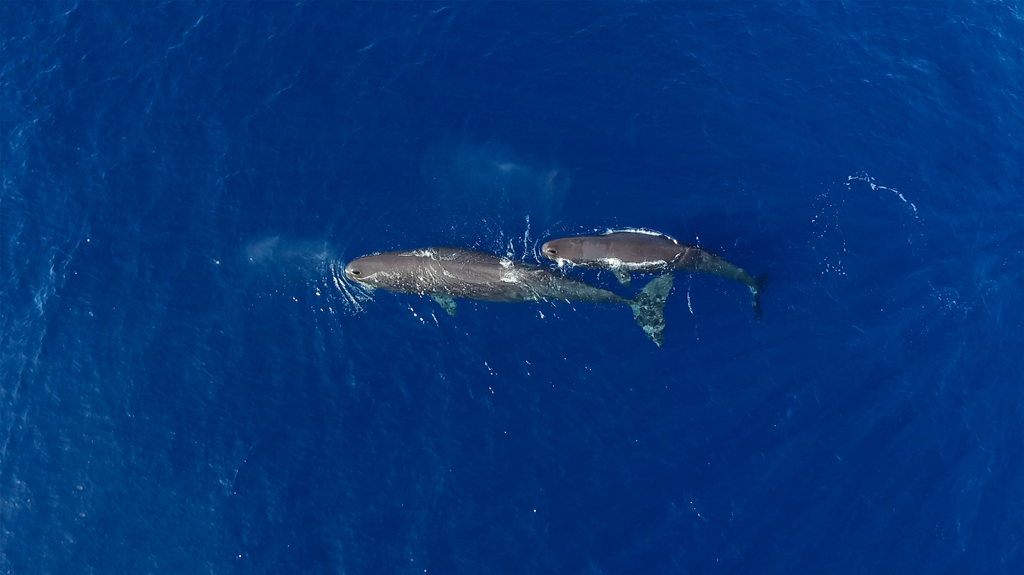 ©SPA/RAC, Artescienza
©SPA/RAC, Artescienza
This program is in line with the following objective: "the impact of noise from human activities on marine and coastal ecosystems is not significant", referred to both by the Strategic Framework Directive for the Marine Environment (MSFD) of the European Union and by the Ecosystem Approach (EcAp) of the Barcelona Convention in the Mediterranean.
The QUIETMED 2 project was funded by the Directorate-General for the Environment of the European Commission within the framework of "DG ENV / MSFD 2018 Call" under grant agreement N° 110661/2018/794481/SUB/ENV.C2. The execution period was 24 months (February 2019 - January 2021).
Several tangible results have been achieved, in particular the first data collected on the international register of impulsive noise (accessible here: http://80.73.144.60/CTN_Geoportal/home/), as well as the definition of a common framework for the definition of risk thresholds necessary for the assessment of the good ecological status of marine and coastal ecosystems in the Mediterranean.
Main results
he QUIETMED 2 project builds on the results of a previous project "QUIETMED 1", also funded by the Directorate-General for the Environment of the European Commission.
QUIETMED 2 has made it possible to make progress on several aspects of the problem of underwater noise. The main results were as follows:
- The first data collection at regional level on the international impulsive noise register, thanks to the launch of the 1st call for data at the level of the Mediterranean region
- The definition of an approach based on risk assessment for the assessment of the Good ecological state of the sea
- A proposal of priority species to be considered for the assessment of Good ecological status
- The construction of a methodological framework to define the ecological risk thresholds that will be necessary to assess the acceptable conditions (Good ecological status)
- The realization of several workshops with the competent authorities, scientists, and experts
- Strengthening cooperation at the Mediterranean level through the involvement of SPA/RAC and ACCOBAMS
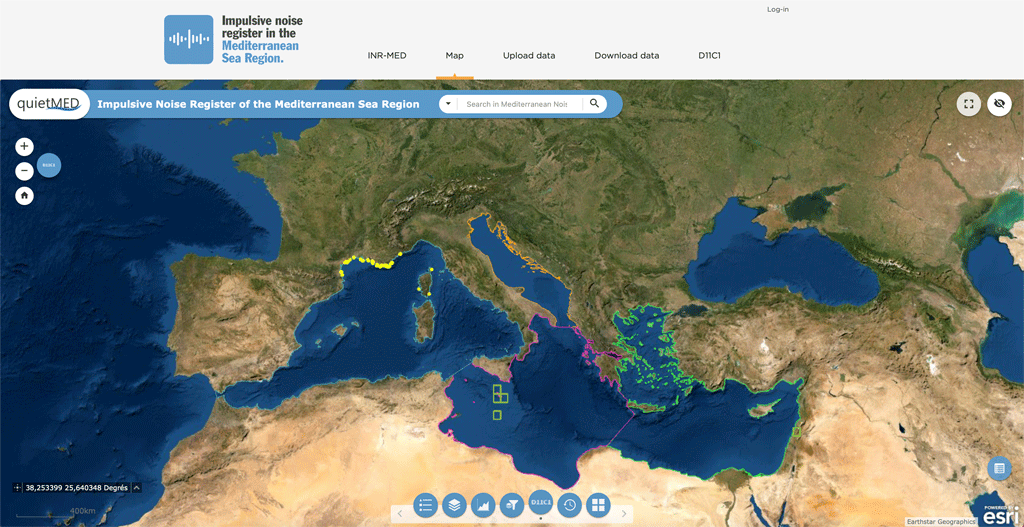
The ACCOBAMS Impulsive noise register in the Mediterranean Sea Region can be accessed at the following link:
The call for data on impulsive noise published in July 2020 can be downloaded here.
The Project’s highlights
The QUIETMED 2 project had its highlights, in particular:
- The workshops with the ACCOBAMS working group on noise and the QUIETMED 2 project advisory committee, which took place in Monaco in June 2019 and in Cartagena in Spain in January 2020. These workshops resulted in the validation of the risk-based approach. This approach is based on the identification of risk areas, where marine mammals are affected by underwater noise.
- The World Conference on Marine Mammals in Barcelona, in November 2019, which provided the opportunity to organize the 1st workshop, with representatives of the competent authorities of the EU and of the countries of the southern Mediterranean, on noise submarine and present the project.
- The workshop with representatives of the competent authorities of the EU and a few southern Mediterranean countries, in September 2020, with more than 40 people connected by videoconference.
- The French-speaking workshop on impulsive noise at sea, having seen the participation of representatives of the competent and scientific authorities from Morocco, Algeria, Tunisia, and Lebanon.
For the needs of French-speaking training on impulsive noise at sea, SPA/RAC has drawn up the “manual for monitoring anthropogenic activities generating impulsive noise at sea”. This manual is intended for the competent authorities of the Contracting Parties to the Barcelona Convention. It provides basic notions on the issue of underwater noise, its impact, legal frameworks and reporting methods at national and international levels (example: the register set up by ACCOBAMS).
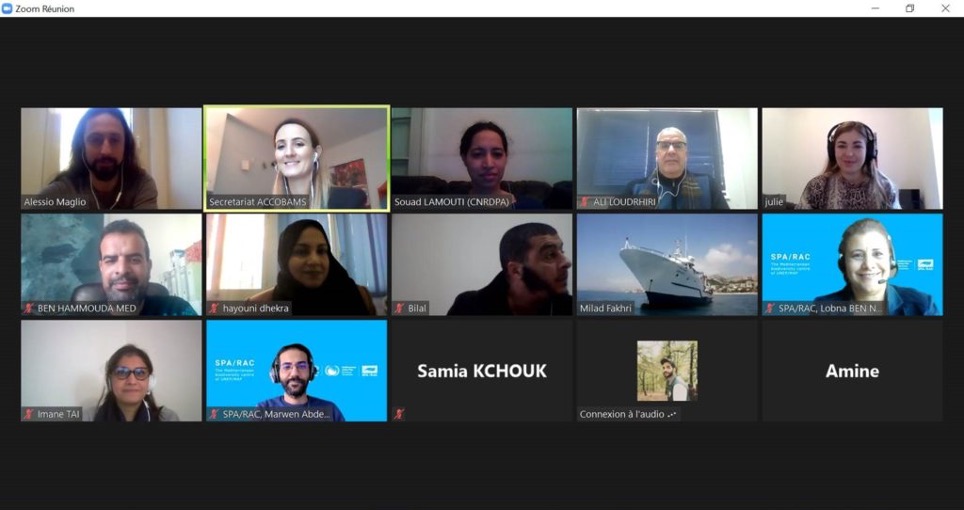
French-speaking training on monitoring anthropogenic activities generating impulsive noise at sea (12/14/2020)
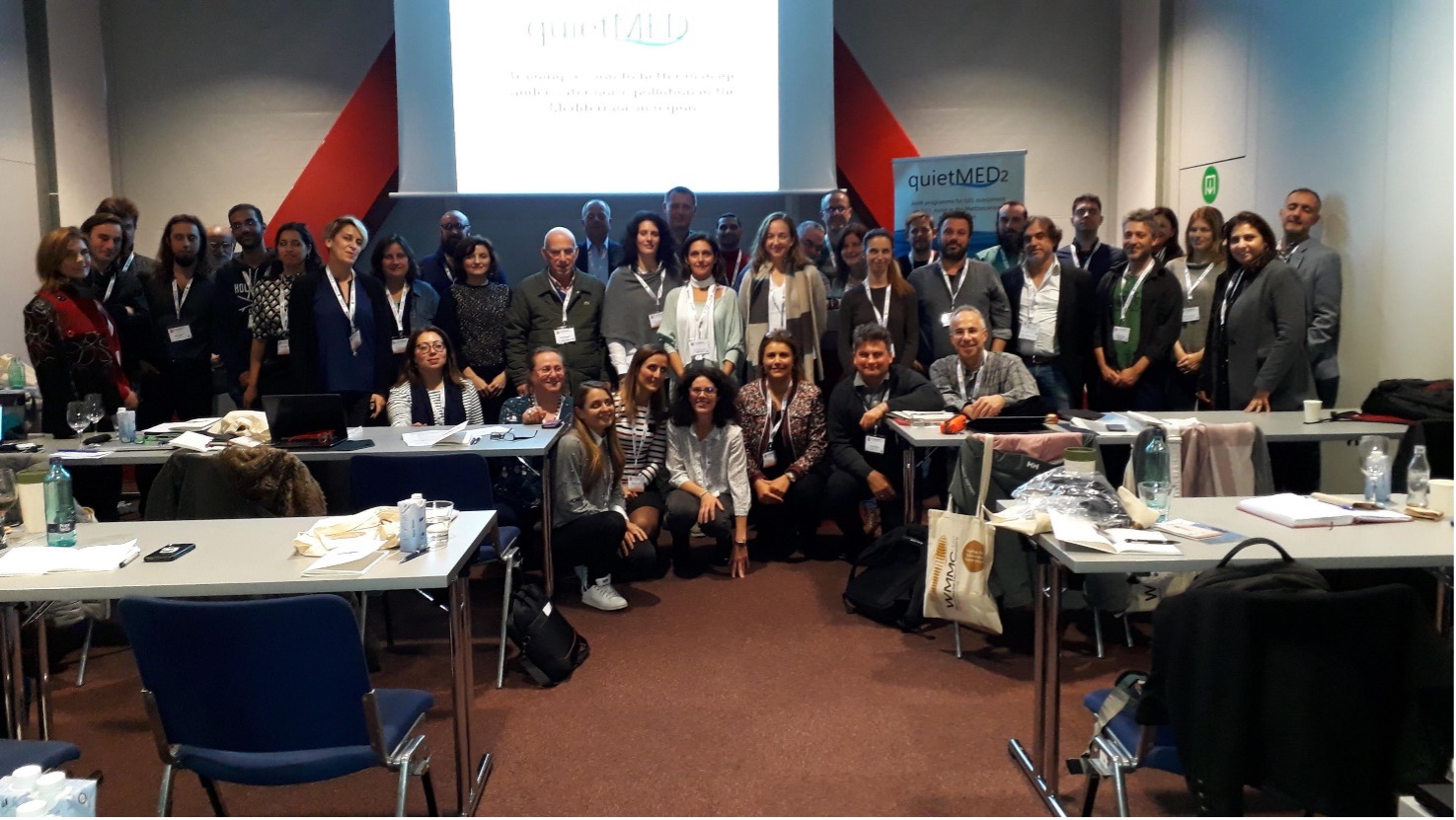 1st workshop with the competent authorities on underwater noise as part of the QuietMED 2 project during the World Conference on Marine Mammals in December 2019 in Barcelona
1st workshop with the competent authorities on underwater noise as part of the QuietMED 2 project during the World Conference on Marine Mammals in December 2019 in Barcelona
Next steps
On the basis of the results of QUIETMED 2, the consortium laid the foundations for harmonized and coherent impulsive noise monitoring at the level of the Mediterranean region. Countries are now called upon to maintain their commitment and thus contribute to the advancement of work on the management of the underwater noise issue.
The next big step will be the 2023 edition of the Mediterranean quality status report (MED QSR), produced by UNEP/MAP. The partners of the QUIETMED 2 project and the new QUIETSEA project work together so that the noise monitoring tools and methods developed during QUIETMED 2 are used to contribute to the assessment of the ecological state of marine and coastal ecosystems in the Mediterranean region.
More information on the QuietMed 2 project:
https://quietmed2.eu/



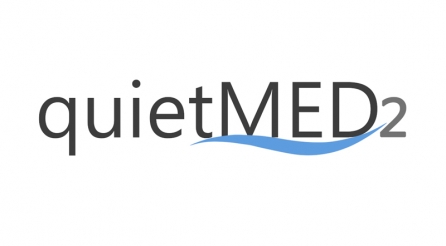
Find Us On...